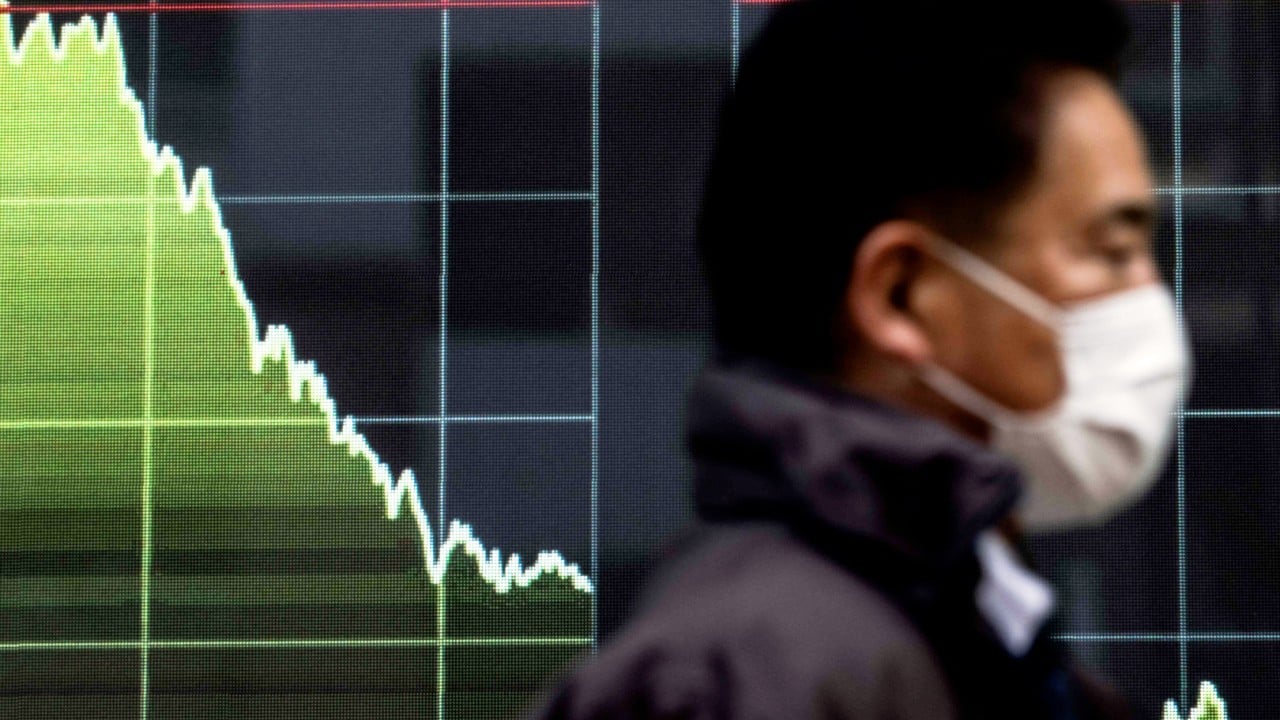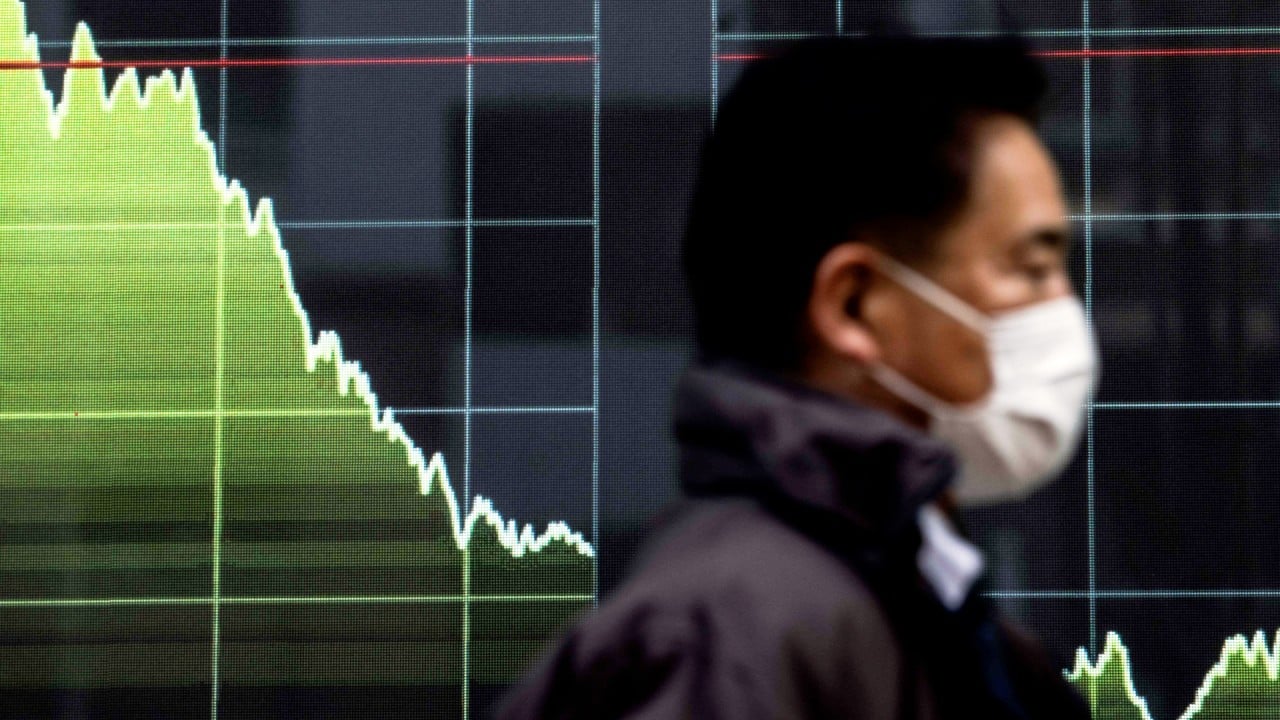US protectionism on China risks ‘new forever war’ with blunder of historic proportions, economist Stephen Roach warns
US economist Stephen Roach, whose gloomy views about Hong Kong and China caused controversy recently, has expounded on his view change “in the last year or so”, owing to China’s “abrupt” economic slowdown and potential US-China conflicts.
Speaking on Friday in Beijing, the former chair of Morgan Stanley Asia said his optimism had waned over that stretch amid “worrisome” trends in China. And he added that the US’ recent tariff hikes on Chinese goods were a “blunder” and the result of election-year politics that could drag the two countries into a “new forever war” on trade.
“[The end to China’s growth shock] has been abrupt. The slowdown has been concentrated in the last few years,” said Roach, who had called himself a “congenital China optimist” for most of the past 25 years, until recently
He cited data from the International Monetary Fund (IMF) that showed China’s contribution to global growth dropped from over 30 per cent in 2010-19 to 24 per cent in 2020-23. It is forecast to drop to 21 per cent from 2027-29.
Roach has been outspoken about his dreary forecasts towards China and Hong Kong’s economic growth in recent months. In February, Roach’s op-ed piece, “It pains me to say Hong Kong is over”, sparked backlash, and he defended his stance by saying it was intended as a “wake-up call”. Weijian Shan, chairman and CEO of investment firm PAG, wrote in an opinion piece in the South China Morning Post in April that many Hongkongers eligible to live elsewhere have not moved, and that this was a testament to their confidence in the city.
My outlook is certainly … more cautious right now with respect to China going forward than it has been at any point in 25 years
In remarks on Friday, Roach said his change of view on the Chinese economy happened in the “last year or so”, with the main reasons being China’s weakening total factor productivity and “deep-rooted concerns” that China-US ties have gone “from bad to worse over the last few years”.
“My outlook is certainly more cautious today than it was back then, and in fact, more cautious right now with respect to China going forward than it has been at any point in 25 years,” Roach said, speaking to a room of diplomats and journalists at an event in Beijing hosted by Center for China and Globalisation (CCG).
“So, China is still the most powerful engine in the world. But the power of the engine is diminishing. And the idea that, you know, we’re talking about China as being in and of itself enough to account for over 30 per cent of global growth – that needs to be rethought,” he said.
Roach, now a Yale lecturer, added that China shows similar “structural problems” that Japan did in the 1990s and early 2000s, including a property crisis and an ageing population that peaked earlier than expected.
This was a similar point of contention recently flagged by economist Richard Koo, who said: “The Chinese situation is far more serious than that of Japan 30 years ago.”
China’s latest move to salvage the property sector by setting aside 300 billion yuan (US$41.4 billion) to convert excess inventory into affordable housing is still “too small a step”, despite being a step in the right direction, Roach said.
“The only way you can maintain rapid economic growth is to offset the demographic headwinds through increased productivity growth. Japan was unable to do that, and I worry about China’s capacity to do that,” he said.
Wang Huiyao, founder of the CCG think tank, when hosting a dialogue with Roach during the Friday event, said that while the speed of China’s economic growth may come down, “the quality may pick up” as China is transitioning from “high-speed to high-quality” development.
Roach questioned the basis for such an argument, pointing to China’s diminishing total factor productivity (TFP).
The economic indicator, which measures the growth rate of how efficiently an economy uses capital and labour, was rising by around 22 per cent between 2003 and 2011, then by a mere 5 per cent between 2011 and 2019, according to an IMF report in 2022.
“You cannot have high-quality growth with weak TFP,” Roach said.
Last week, the IMF upgraded its 2024 growth forecast for China’s economy by 0.4 percentage points, to 5 per cent, due to a stronger first-quarter economic recovery, matching Beijing’s own target for this year’s growth. Yet, Roach said it does not “change the basic story” that China’s growth is still only at “half the pace” it was in the past three decades.
To boost the Chinese economy, Roach said there should be a shift in the mix of economic support “away from low-productivity [state-owned enterprises] to a higher productivity private sector, especially technology companies”.
On China-US ties, Roach said that China’s comparative advantage in producing new-energy products should not have been met last month with US President Joe Biden’s proposed tariff increases on Chinese electric vehicles, lithium-ion EV batteries, battery parts and solar cells.
“I think there’s a huge strategic mistake driven by election-year politics in the United States,” he said, adding that Biden could be going “even deeper into a new forever war” in terms of trade with China.
“To take a protectionist stand against a country like China – that has a comparative advantage in producing the non-carbon, alternative-energy products that a world in the grips of climate change desperately needs – is a blunder, potentially of historic proportions,” Roach said.
“I don’t see any signs that President Biden is going to rethink this approach should he be re-elected at the end of this year,” he added. “And I don’t think we can count on [former US president Donald Trump] delivering spontaneous relief on the US-China trade front, either.”



